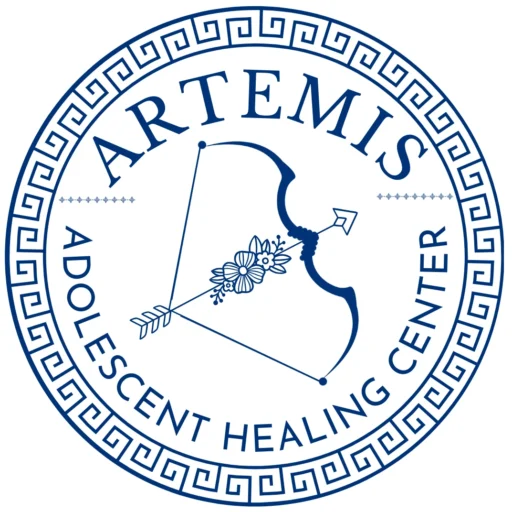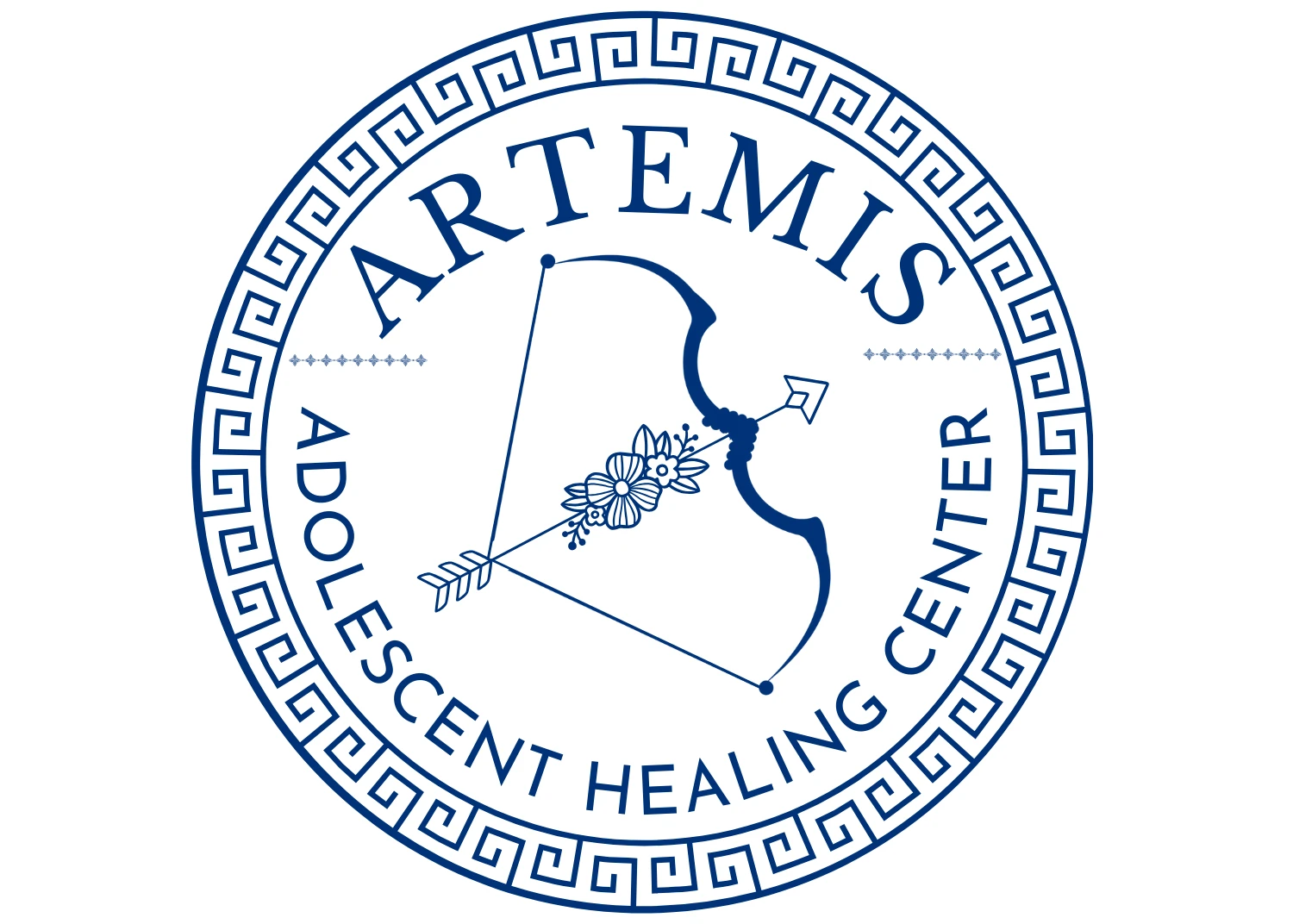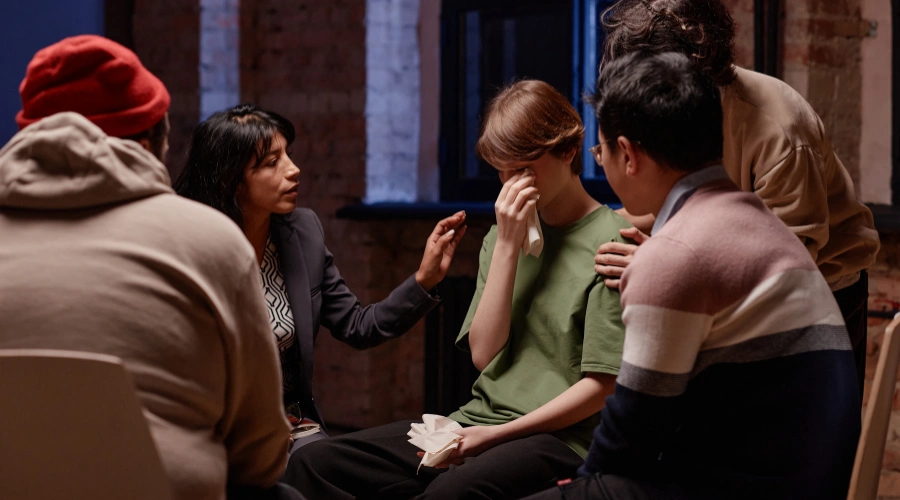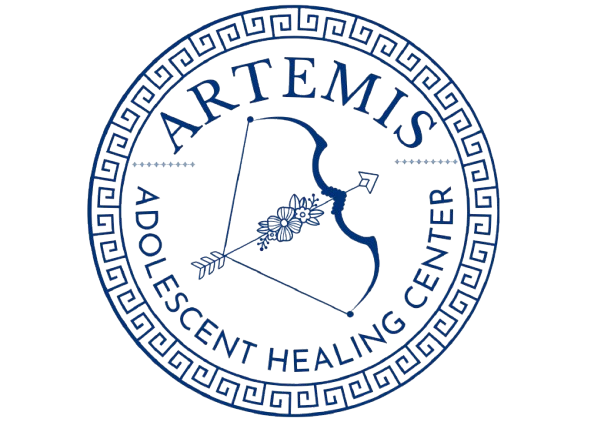Guidance on Alcoholics Anonymous for Teens (and Parents)
The teenage years are difficult. Alcohol might seem like a quick fix or an easy escape, but it makes things harder. It can also easily become a much bigger problem than your teen ever expected when picking up their first drink.
That’s when Alcoholics Anonymous meetings (AA) can help. But is AA for teens a safe and effective way of getting help for your child?
AA is about how you want to change, not just lectures or pressure. Your teen can sit in a room with others who’ve been where they are and see firsthand that recovery is possible. And that recovery is the best path to getting the things they want from life.
This resource from Artemis Adolescent Healing Center offers guidance on convincing your teen to get to a meeting, when to consider more intensive treatment, and where to find AA meetings for young people in Tucson, AZ.
Get Accredited Treatment Programs at Artemis
How Does Alcoholics Anonymous Help Teens?
Alcoholics Anonymous was originally created for adults, but times have changed. Teens can also find support there.
At its core, AA gives your teen a safe space to talk about their alcohol struggles. They’re with people who truly understand, and your teen doesn’t have to feel judged. The AA program is built on honesty, accountability, and community.
These things make a big difference for teens who feel isolated because of drinking. Teens with substance abuse problems are welcome at AA meetings. Alternatively, teenagers can also attend NA meetings as well.
AA also helps your teen see that recovery isn’t about perfection. In fact, it’s quite messy sometimes. As long as they are showing up, being honest, and taking small steps forward, though, they’re doing okay. This simple structure makes AA relatable, even for a teen.
Many Young People Find Support in AA Meetings
Walking into a meeting and seeing a lot of participants can be intimidating, but it also shows your teen they are not alone. People of all ages struggle with alcoholism (and people of all ages attend AA meetings, too!). As others celebrate milestones and overcome challenges, it becomes much clearer that recovery is possible.
If your teenager is intimidated, remind them that participation is optional. All they have to do is listen, at least until they are ready to share.
Many Communities, Many Options
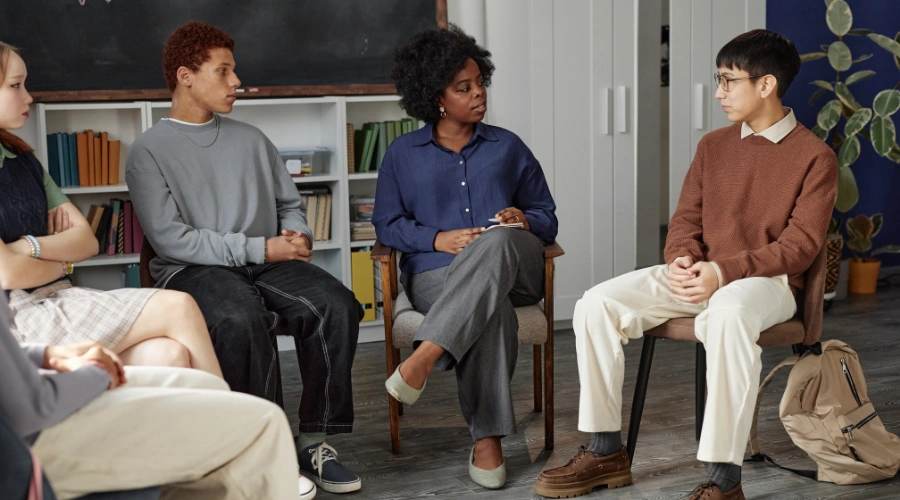
One of the biggest strengths of Alcoholics Anonymous is that it’s accessible, and meetings are everywhere. General meetings are open to anyone, while others are specifically designed with young people in mind.
With so much flexibility, families have options. Some meetings will be more youth-oriented, while others are best suited to newcomers. Your teenager probably falls into both categories.
Younger age groups might make your teen feel more comfortable when they attend, while adult groups have the added benefit of hearing a mix of perspectives from different attendees. Encourage your child to try both and learn what works.
Aftercare: A Critical Part of Adolescent Addiction Treatment
The steps your teenager takes following recovery are critical to long-term success. Going to AA meetings keeps that healing momentum going. AA meetings act as a form of structured support.
By combining them with therapy and other support, your teen has a wider safety net. They feel ready as they ease back into the challenges of home, school, and social life following treatment.
What to Expect in a Teen Alcoholics Anonymous Meeting?
The first AA meeting might feel like a big unknown, but it’s important to go anyway. Meetings are usually simple and welcoming. Nobody is forced to talk, and your teen can just sit back and listen until they’re ready.
Meetings are also a great place to find a sponsor. This is a person who has recovery experience and can offer one-on-one support for your teen. AA members who are open to sponsorship often are asked to raise their hands during meetings, and this can help identify a suitable candidate.
The format can vary, but the vibe is usually low-pressure. Everyone is there for the same reason: to find support and stay sober.
Recognizing Your Teen Has a Drinking Problem

Having drinks with friends or going to a party doesn’t mean your child cannot stop drinking, but this might be where it starts. “Normal” teen experimentation can easily slide into a drinking problem, especially if it comes with secretive behavior, slipping grades, mood swings, or new friend groups.
If you notice these signs, early intervention matters. Coping with alcohol for stress or emotions gets more dangerous as time goes on. Helping your teen sooner also prevents long-term sobriety struggles.
Is Al-Anon Good for Family Members?
As parents, we want to fight our child’s battles. But we are powerless when it comes to addiction. This doesn’t mean that you can’t offer support, but your teenager has to decide for themselves that they want to fight.
What you can do is consider Al-anon meetings for family members of people struggling with addiction. Here, you’ll be able to share your experiences, get insight, and vent in a safe space. It’s also a good resource for learning how to support your teen without putting your own well-being at risk.
How Do You Know if AA is Right for Your Child?
Does AA work for every teen? No. But it is worth exploring. Does your teen seem isolated following addiction? AA can help them find community. Would they respond better to personal stories and experiences than parental advice? AA can help with that, too.
The reality is that parenting comes with hard decisions. If you need help making this one, reach out to Artemis. We can help you decide if AA should be part of your teen’s recovery plan or if they’d benefit from a more structured approach.
Get Effective Detox and Rehab Options at Artemis
AA vs. Professional Treatment
Getting your teen help doesn’t have to be one or the other. Often, substance abuse benefits from professional treatment and continued support on the outside. Think of AA as a supplement to the therapy, counseling, and treatment your child receives. AA has its own benefits, but it is less intensive than some teens need to kick bad alcohol habits for good.
Combining the two creates balance. Teens get structure and tools from therapy, alongside encouragement and accountability when they attend meetings. Together, they provide a stronger foundation for your teen to heal.
When Should Families Consider Residential Treatment for Teens?
AA and outpatient therapy don’t always provide the support that teens need to overcome addiction, especially if they’ve been hiding it for a long time. It can be hard to stop drinking alone. Your teen might even have uncomfortable (or dangerous) withdrawal symptoms.
Residential programs like ours at Artemis help teens in those critical early stages of withdrawal, when it’s really hard to stay sober. We use a holistic approach involving therapy, education, mind-body wellness, and family involvement.
Off-site detox services might be required for cases where alcoholism is so severe that it causes dangerous withdrawal symptoms. AA will likely be recommended as aftercare, but inpatient rehab can put your child on the path where it’s actually effective.
Alcoholics Anonymous Meetings for Teens in Tucson, AZ

Not all AA meetings are created equally, and that’s perfect because people are at different points in their journey. Your teenager will feel more supported once they do find their sobriety tribe.
Look for teen-friendly groups and those designed for newcomers or beginners. These teen-friendly meetings are perfect for Tucson families looking for support.
1. Sunday Night Young People’s (SNYP)
Sundays at 7:45 p.m. at the Pima Alano Club – 4405 E. Pima St.
2. Campus Newcomers
Wednesdays at 7:30 p.m., Fridays at 8:30 p.m. at the Campus Health Building – 1224 E. Lowell St., 3rd Floor
3. Weeknight Newcomers Group
S, M, T, W, Th, F at 6 p.m. at the Northwest Alano Club – 3120 W. Curtis Rd.
4. Smoke-Free Nooners Group (Newcomers)
Tuesdays at 7 p.m. – 3620 N. 1st. Avenue, #148
5. Fresh Start Group
M, T, W, Th, F, S at 7 a.m. at Northwest Alano Club – 3120 W. Curtis Rd.
When looking at AA meetings, your teen should prioritize finding one where they feel comfortable and supported. This makes them more likely to share, listen, and take what they can from the program.
Up To 100% of Rehab Costs Covered By Insurance
We Can Help You Decide on the Next Steps at Artemis
AA meetings are just one part of the much bigger puzzle when it comes to helping your teen heal from addiction, but they play a critical role. Tucson is a thriving recovery community, so it won’t be hard for your teen to find meetings where they can connect with peers and other recovering alcoholics who understand their struggle.
If you have questions about where to start, whether AA meetings will help, or if your teen needs professional treatment, call Artemis Adolescent Healing Center today. We guide families through these choices, while providing the care and support that teens need to build lasting recovery.
All calls are confidential, so please reach out to get options now.
